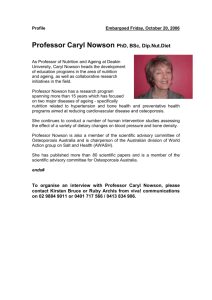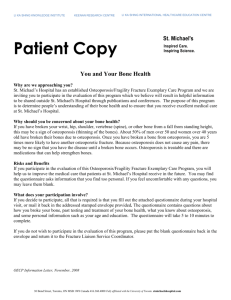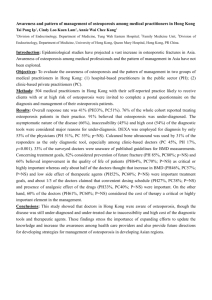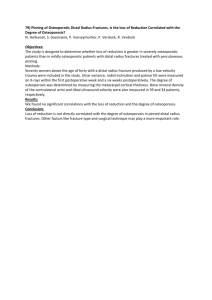Osteoporosis
advertisement
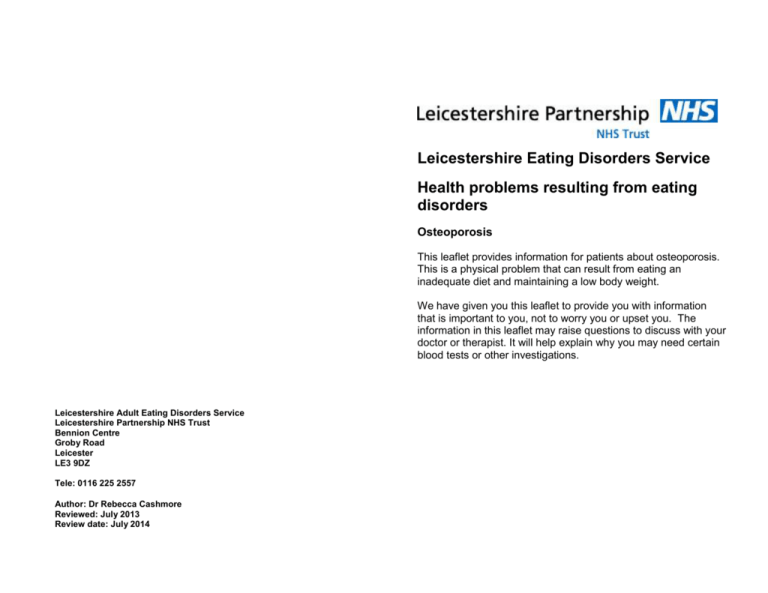
Leicestershire Eating Disorders Service Health problems resulting from eating disorders Osteoporosis This leaflet provides information for patients about osteoporosis. This is a physical problem that can result from eating an inadequate diet and maintaining a low body weight. We have given you this leaflet to provide you with information that is important to you, not to worry you or upset you. The information in this leaflet may raise questions to discuss with your doctor or therapist. It will help explain why you may need certain blood tests or other investigations. Leicestershire Adult Eating Disorders Service Leicestershire Partnership NHS Trust Bennion Centre Groby Road Leicester LE3 9DZ Tele: 0116 225 2557 Author: Dr Rebecca Cashmore Reviewed: July 2013 Review date: July 2014 Osteoporosis Osteoporosis literally means ‘porous bones’. When it occurs, bones become less dense or thinner, making them fragile and more likely to break. Osteoporosis is a ‘silent’ disease as people cannot feel their bones getting thinner. The first sign of osteoporosis may not be until a fracture has occurred. Low weight is a risk factor for osteoporosis and people with Anorexia Nervosa are at high risk of developing osteoporosis, especially if they remain at a low weight for a long period of time. Osteoporosis may occur after approximately a year of illness but will become more severe over time, until weight restoration is achieved. Prior to the development of osteopororis bones may start to thin and this stage is known as “osteopenia”. If weight loss continues or persists then this may develop further into osteoporosis. The reasons that low weight is a risk factor for osteoporosis in people with Anorexia Nervosa include lack of oestrogen due to a loss of the menstrual cycle, other hormonal changes, malnutrition and deficiencies in magnesium, calcium and vitamin D. Other more general risk factors for osteoporosis include smoking, some medical conditions such as thyroid disease, heavy drinking, other causes of malnutrition, a family history of osteoporosis and long term steroid use. Osteoporosis is not fully reversible but prevention of further bone loss and some increase in bone density can occur. Weight restoration and a return of the menstrual cycle is the mainstay in the management of osteoporosis in people with Anorexia nervosa. Physical exercise can be protective in osteoporosis but excessive exercise in people who are low in weight is harmful. It will lead to further weight loss, continued loss of the menstrual cycle and therefore increase the chance of progressive loss of bone density and fractures. Currently, there is little clear evidence to support the use of hormonal treatments such as the oral contraceptive pill or HRT in the management of osteoporosis in people with Anorexia Nervosa. Calcium and vitamin D supplements are sometimes used but they will not be effective without adequate nutritional intake and weight restoration If you have any questions or concerns about the information in this leaflet you can raise these with your doctor or therapist or leave a message with our secretaries on 0116 2256211/ 0116 2256230.


